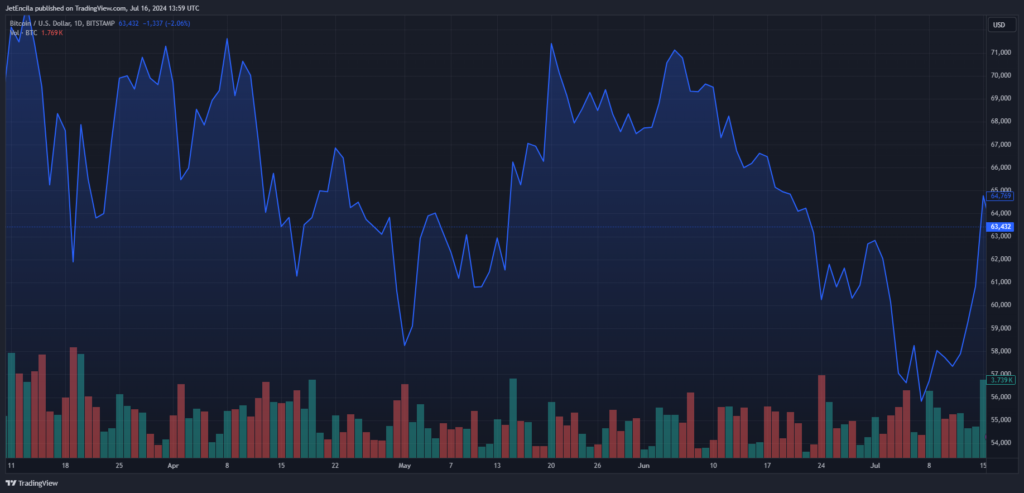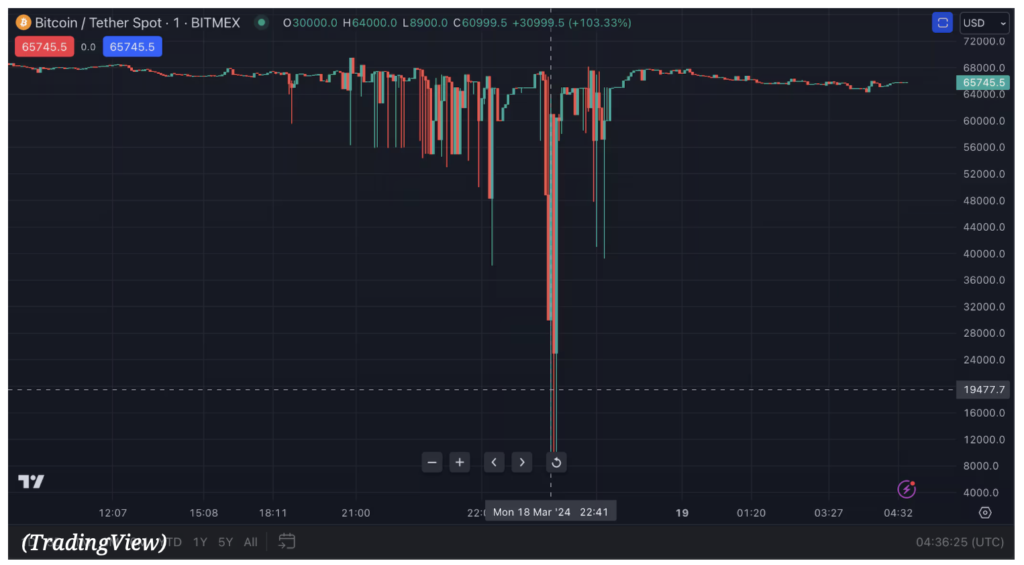
The economics of Bitcoin mining are changing. While bitcoin is trading close to an all-time high, it no longer has the same effect on Bitcoin miner profits, given the network’s hashrate is also sitting at record levels.
Record Hashrate and Declining Revenue
With Bitcoin trading at over $63,500, one would expect miners to be making substantial profits. The facts are actually very different. The harsh rate of the Bitcoin network has increased to an astonishing 635 hashes per second (EH/s). The mining industry is now much more competitive because of the increase in computer power.
In November 2021, when Bitcoin’s price was trading at comparable levels, the average hashrate was just 161 EH/s. According to data from the Hashrate Index, Bitcoin’s “hash rate” is at its lowest level in the last five years.
On July 16, the daily “hash price” was $51.13, showing how much a miner should expect to earn per day at that hashrate. The mining landscape for Bitcoin is substantially more competitive because the cost of mining a single block is significantly higher while the profit margin is lower.

Specialist Opinions
Kurt Wuckert Jr., CEO and creator of Bitcoin SV mining pool Gorilla Pool, claims that the profitability of mining the SHA256 blockchain is at a nearly six-year low. According to him, the reason some of the largest Bitcoin miners in the US are still successful is that they are listed on a public exchange and the value of their shares is included in their overall profitability.
Addressing the audience at Crypto Connect Palm Beach in Miami, Wuckert expressed his concerns about the current state of the market and advised against purchasing mining equipment or blockchain assets because of the overall uncertainty.

Chart: TradingViewa
Fears of Centralization
In the bitcoin community, concerns are growing about the centralization of mining power. According to a Bitcoin.com investigation in June and information from a news release from Gorilla Pool, two mining pools—Findry and Antpool—have emerged as significant participants, responsible for mining 54% of all bitcoin blocks during the past year.
Mining pools permit person diggers to maximize their chances of effectively extricating blocks by pooling their computational abilities. However, this method has resulted in a situation in which a few large companies control much of the network’s hashrate. Such centralization undermines Bitcoins’ dispersed nature, making the network more vulnerable to potential security threats and governance issues.
